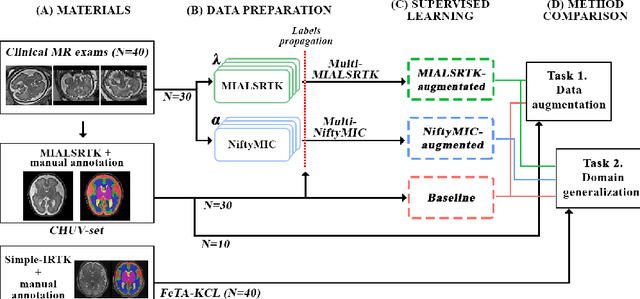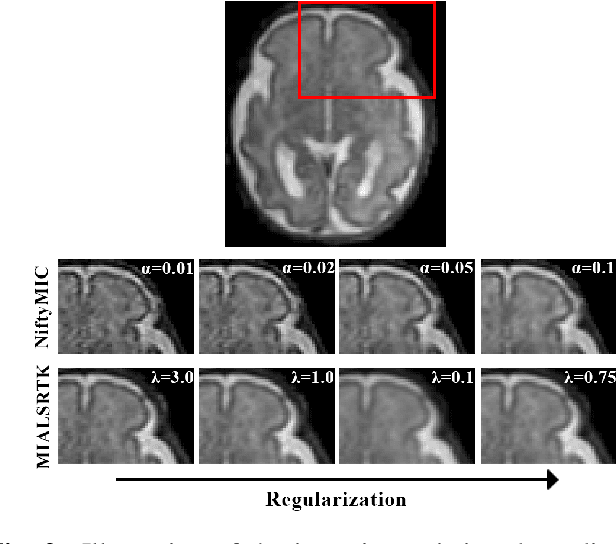Domain generalization in fetal brain MRI segmentation \\with multi-reconstruction augmentation
Paper and Code
Nov 25, 2022



Quantitative analysis of in utero human brain development is crucial for abnormal characterization. Magnetic resonance image (MRI) segmentation is therefore an asset for quantitative analysis. However, the development of automated segmentation methods is hampered by the scarce availability of fetal brain MRI annotated datasets and the limited variability within these cohorts. In this context, we propose to leverage the power of fetal brain MRI super-resolution (SR) reconstruction methods to generate multiple reconstructions of a single subject with different parameters, thus as an efficient tuning-free data augmentation strategy. Overall, the latter significantly improves the generalization of segmentation methods over SR pipelines.
* 5 pages. This work has been submitted to the IEEE for possible
publication. Copyright may be transferred without notice, after which this
version may no longer be accessible
 Add to Chrome
Add to Chrome Add to Firefox
Add to Firefox Add to Edge
Add to Edge